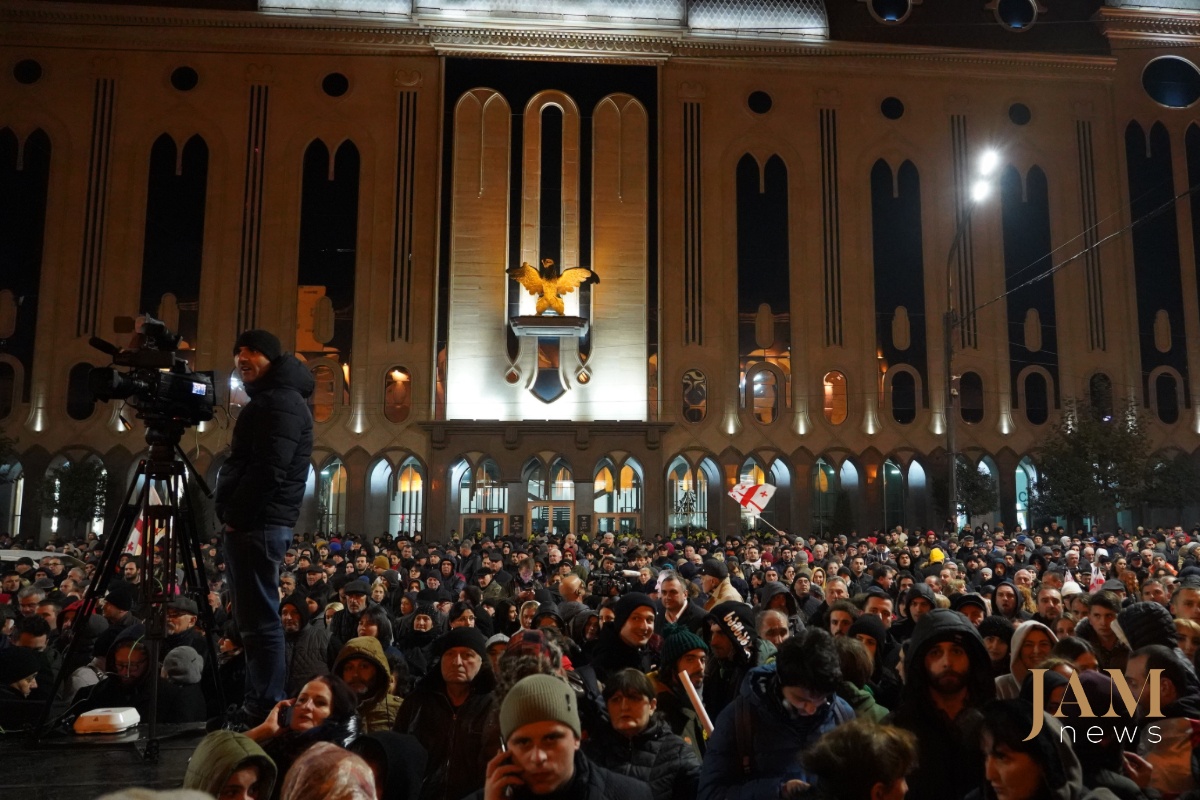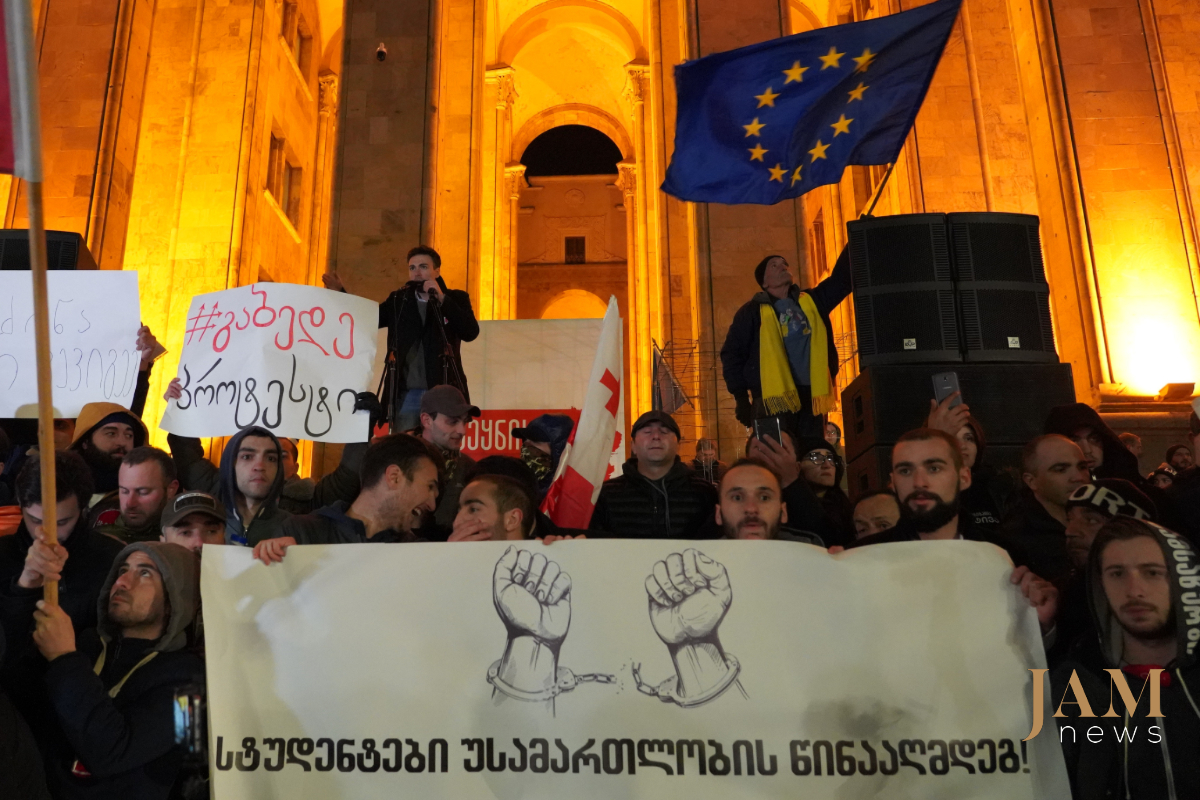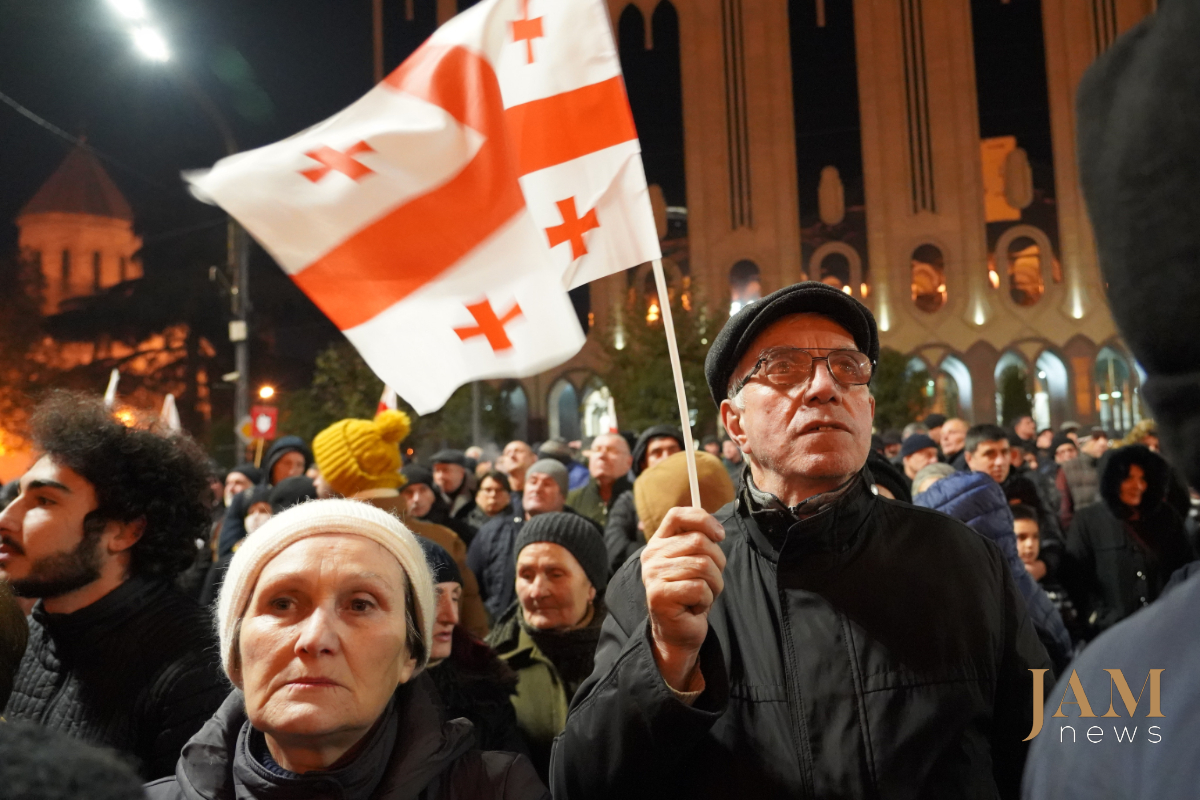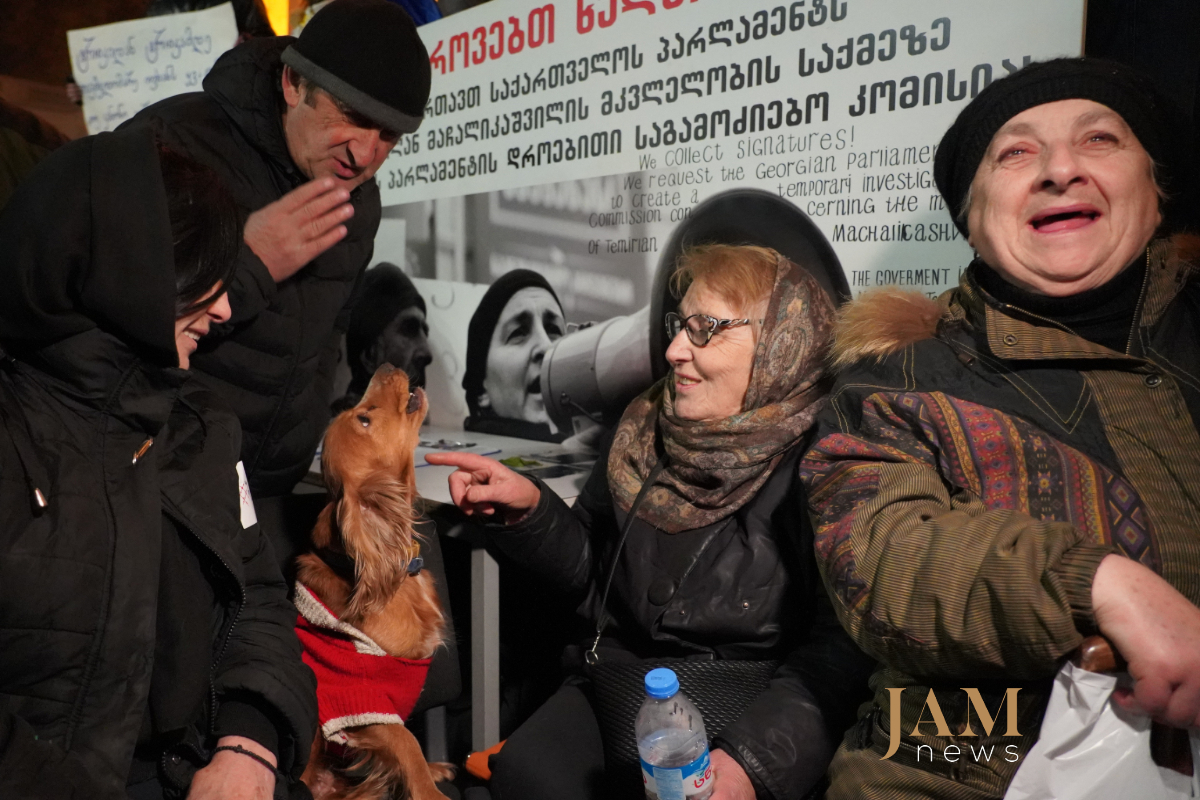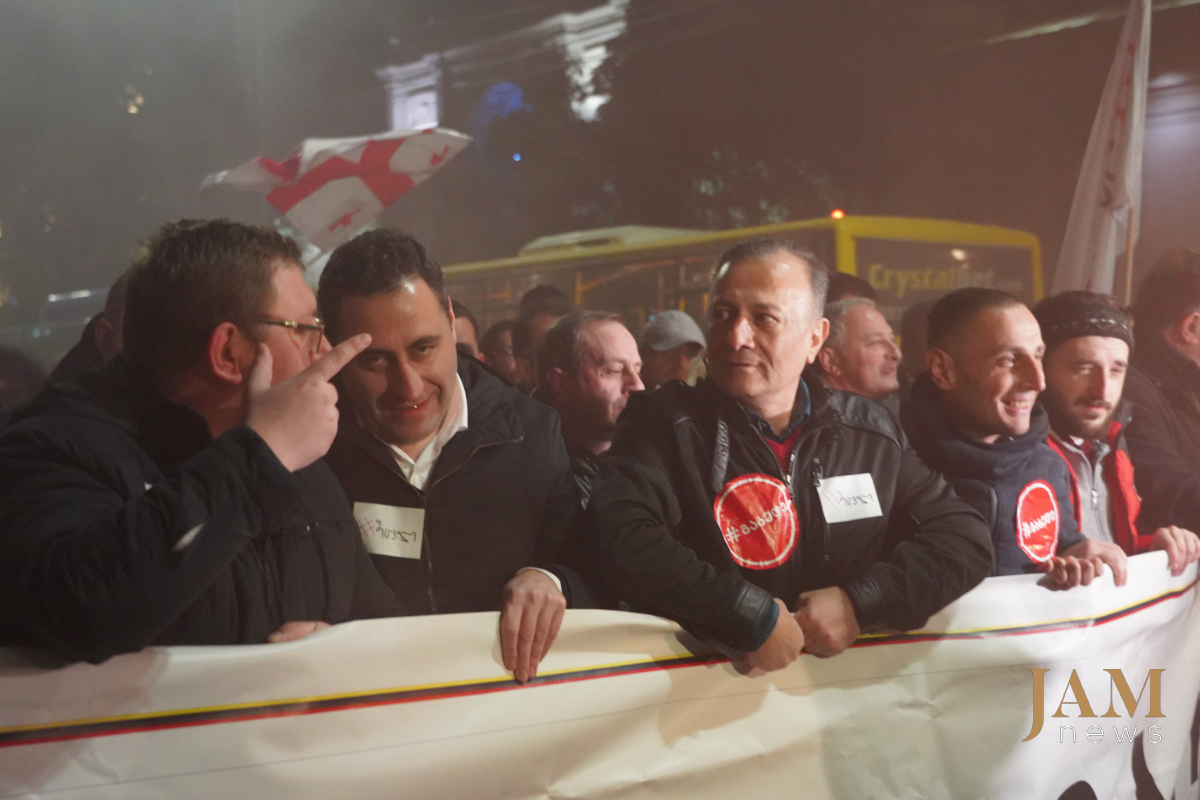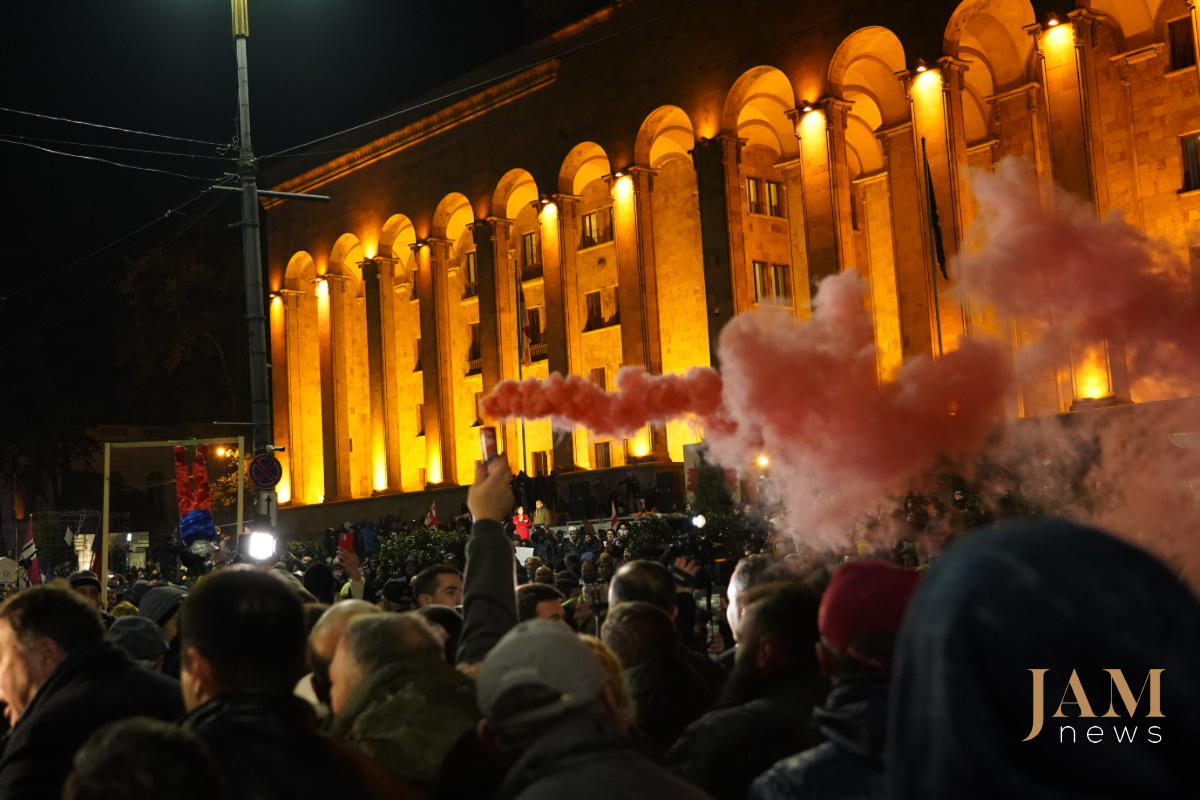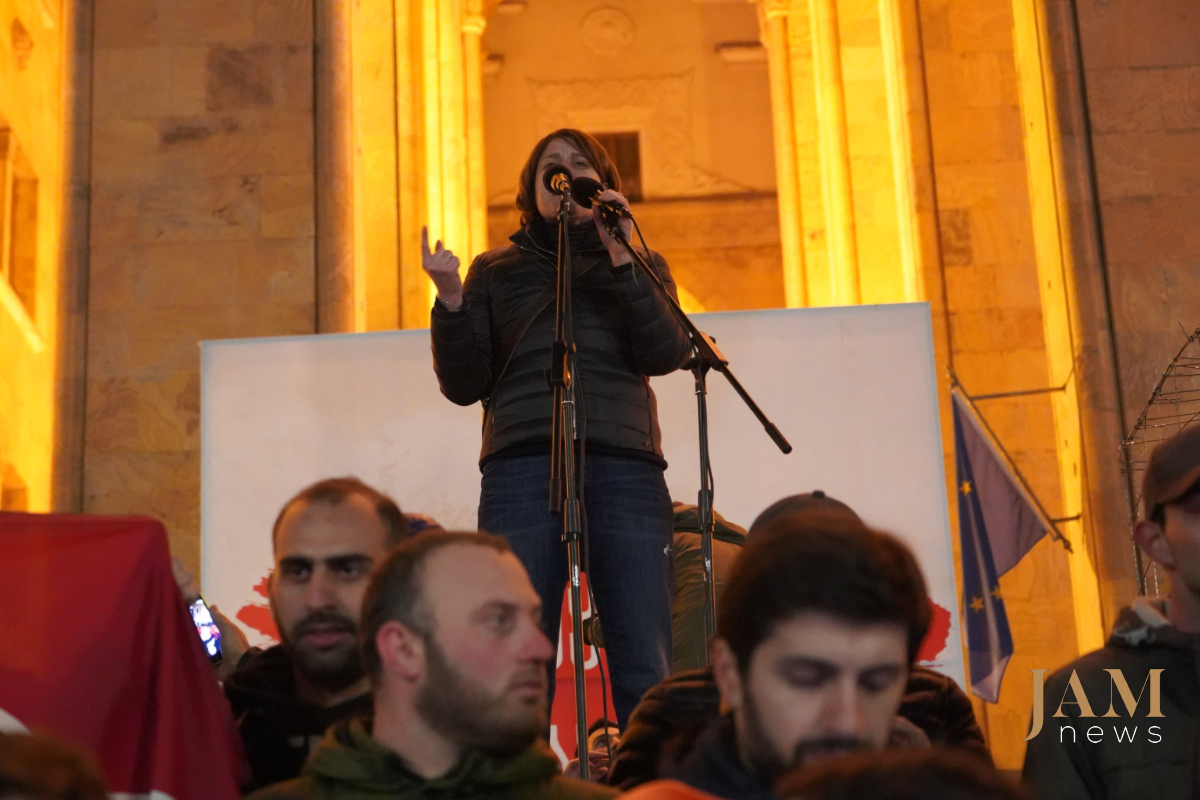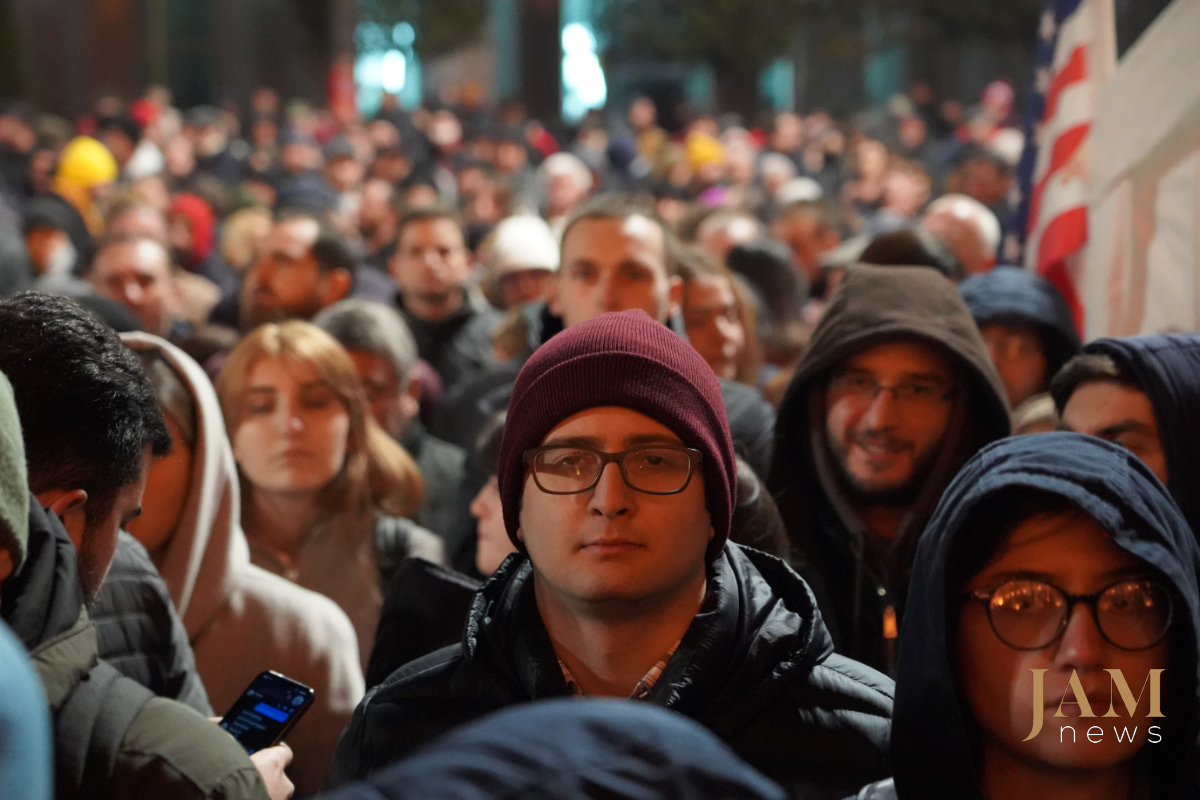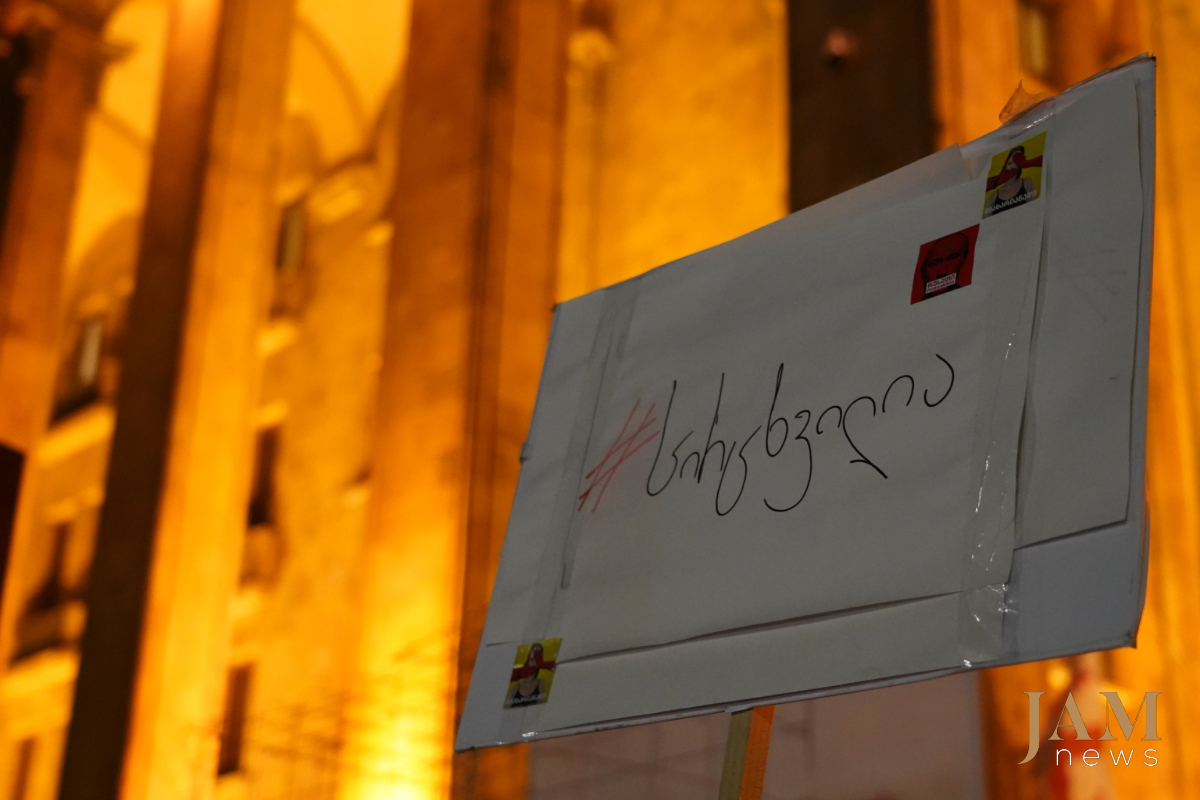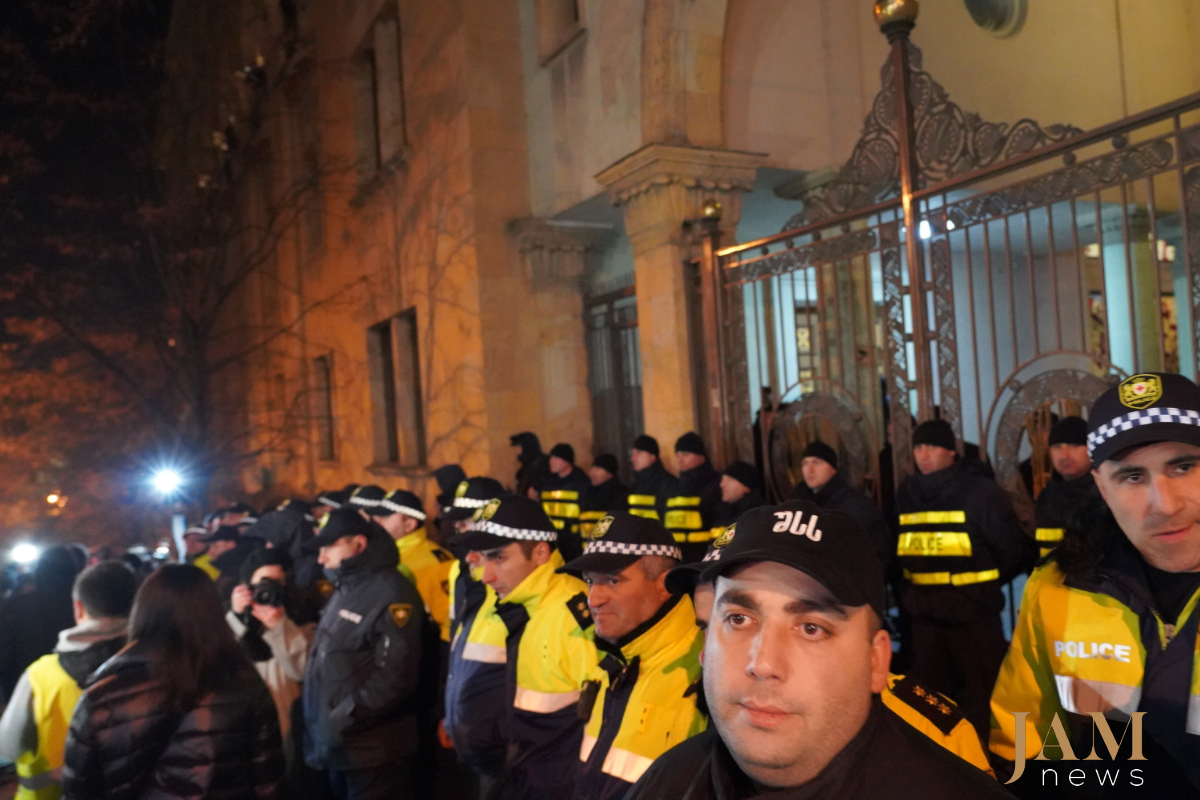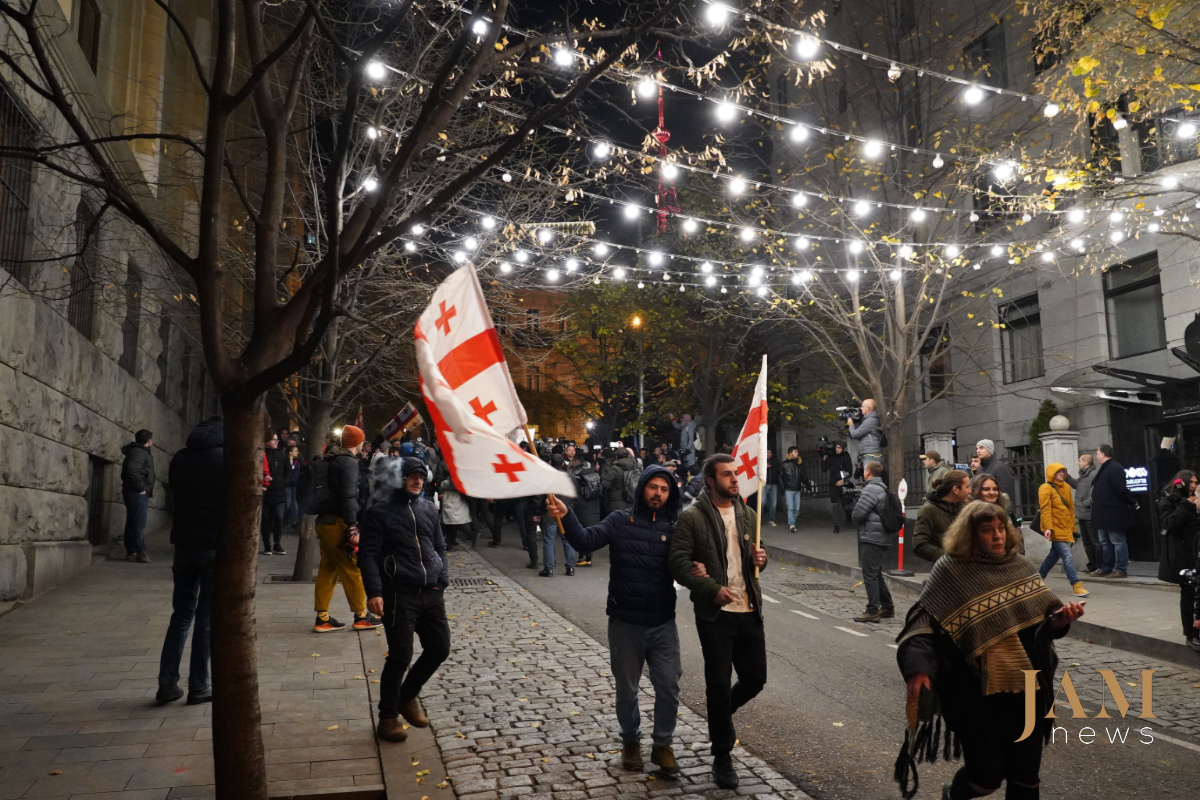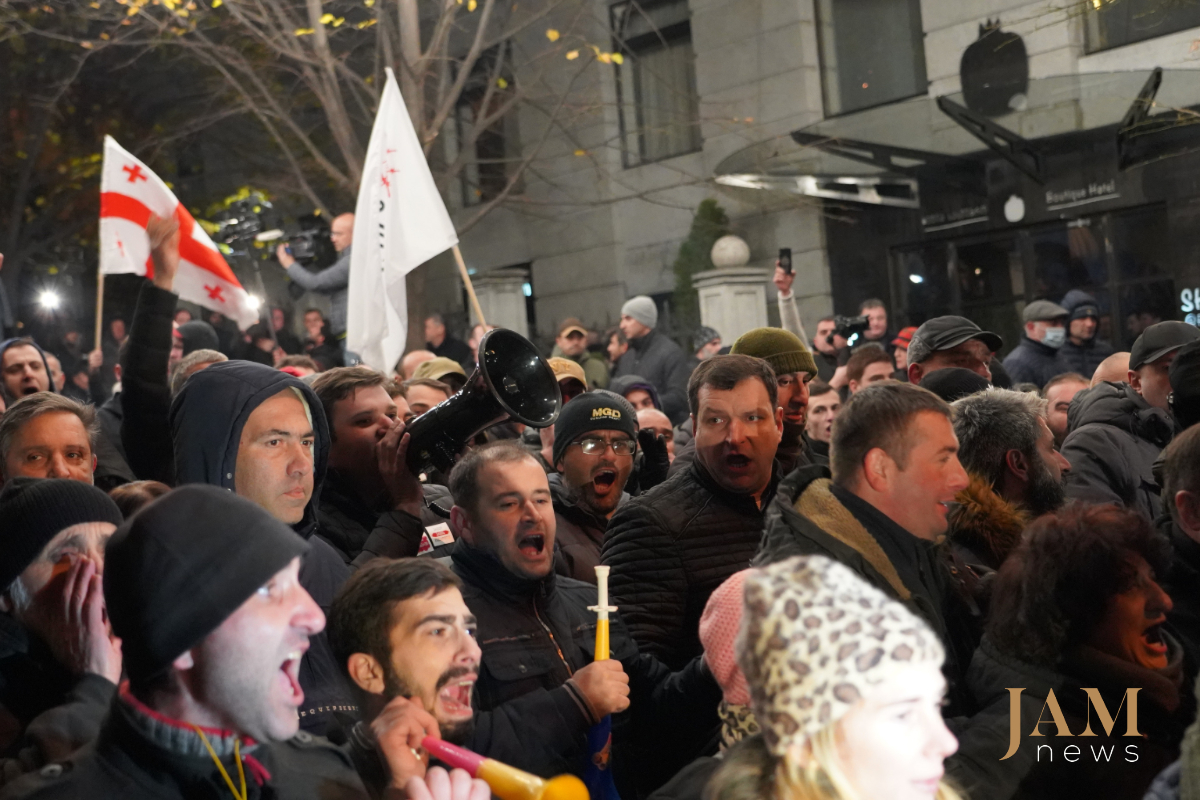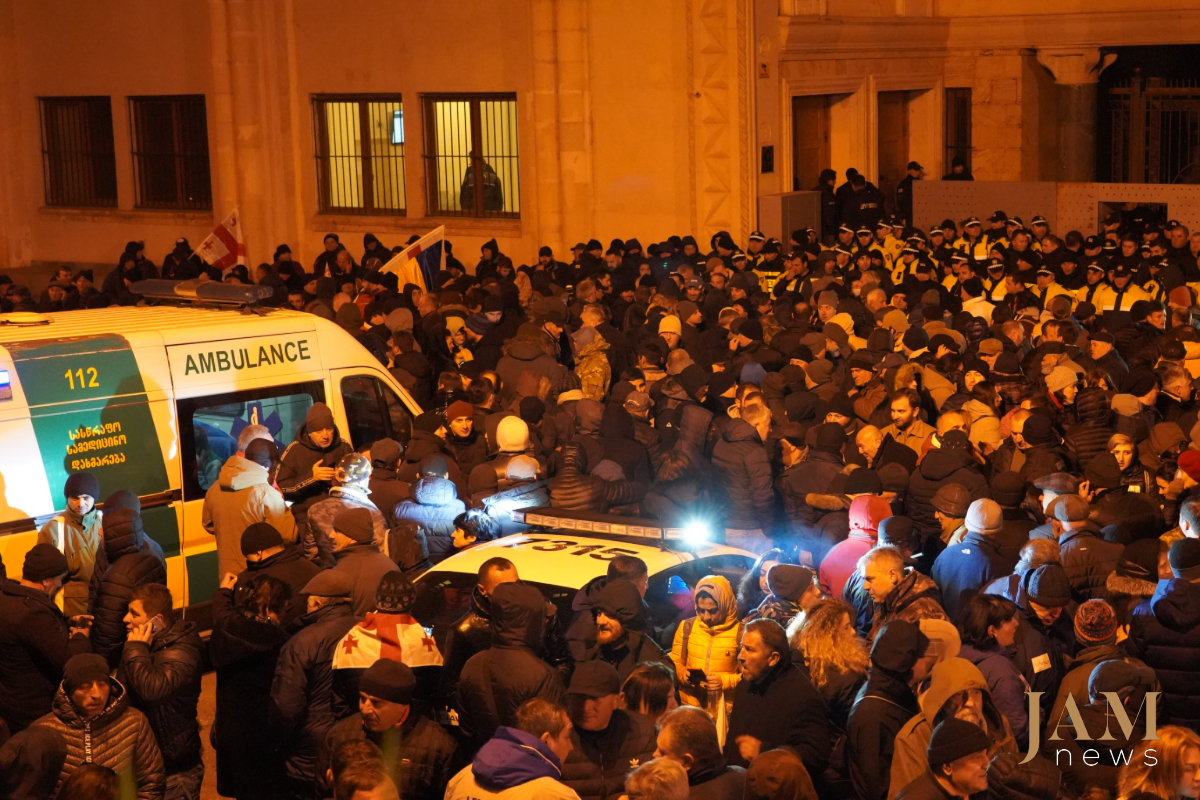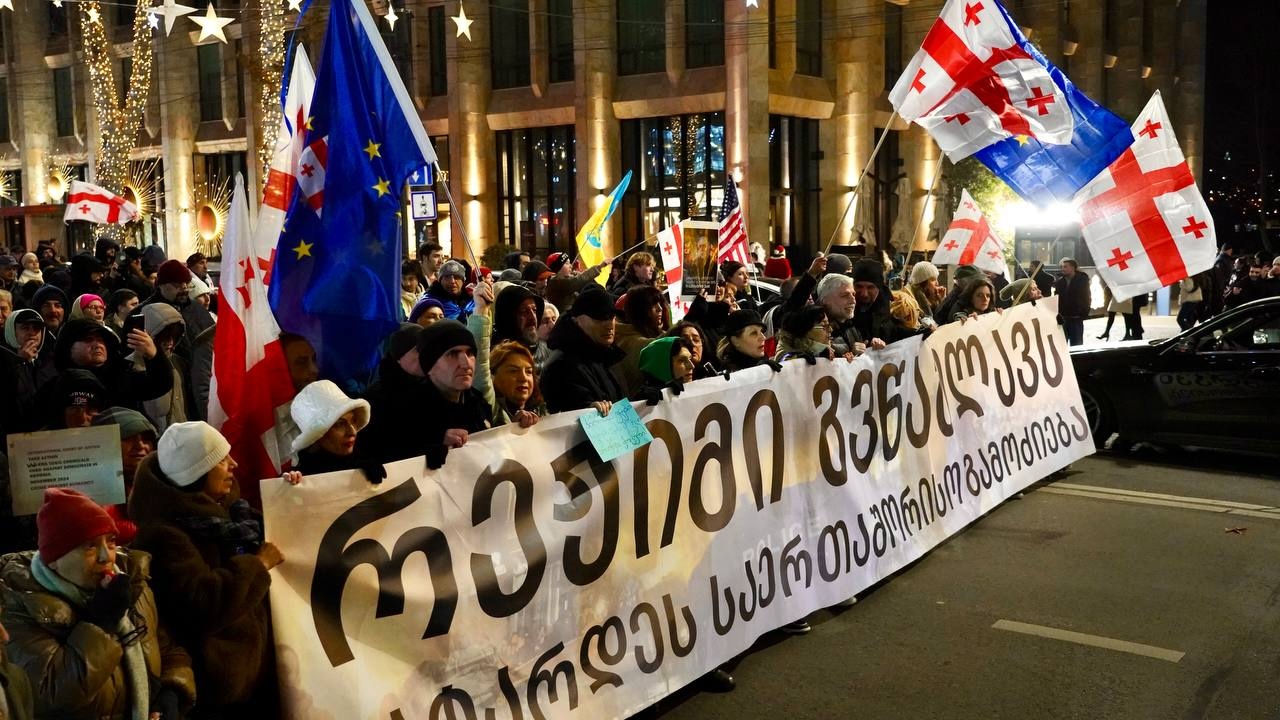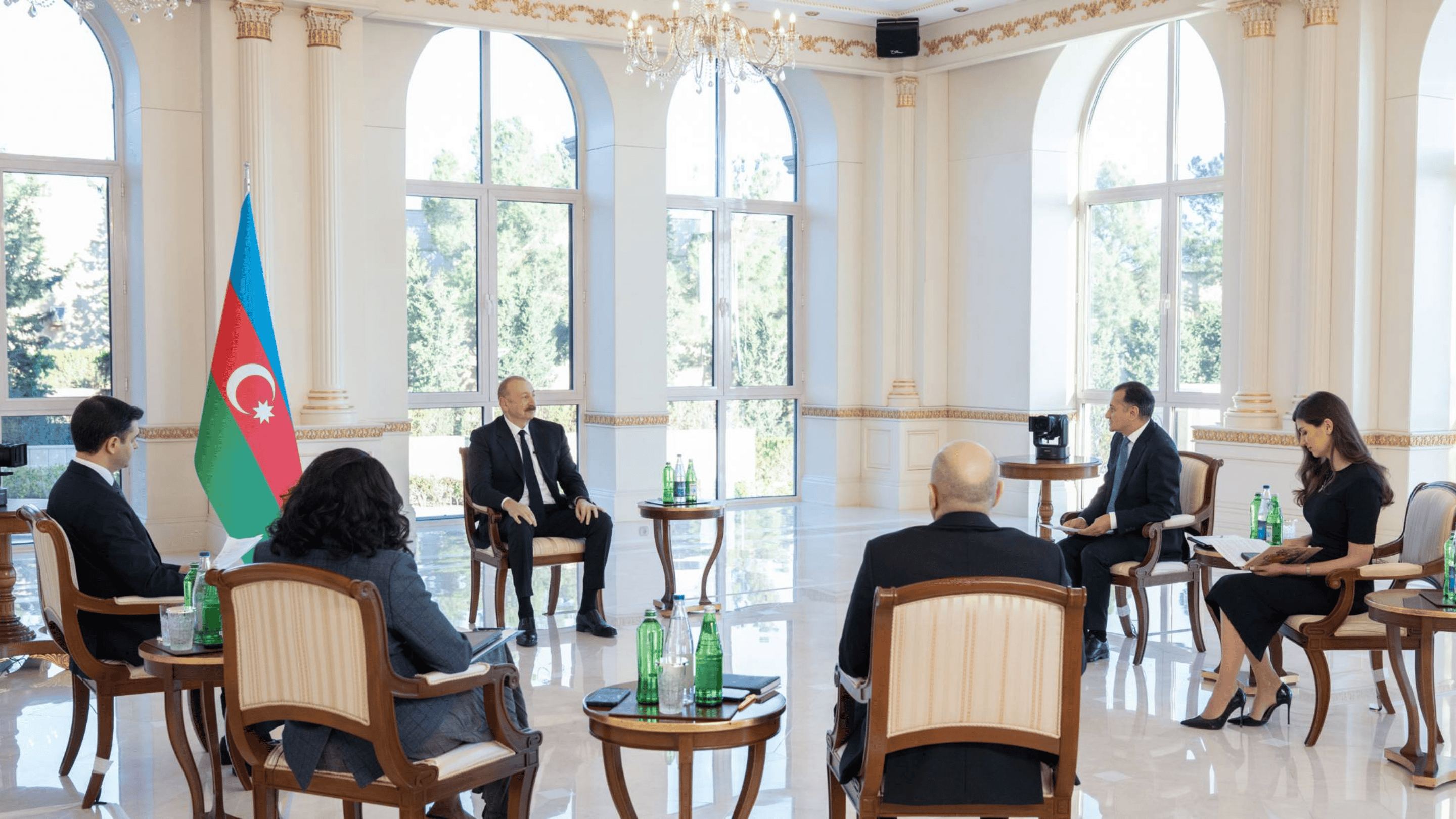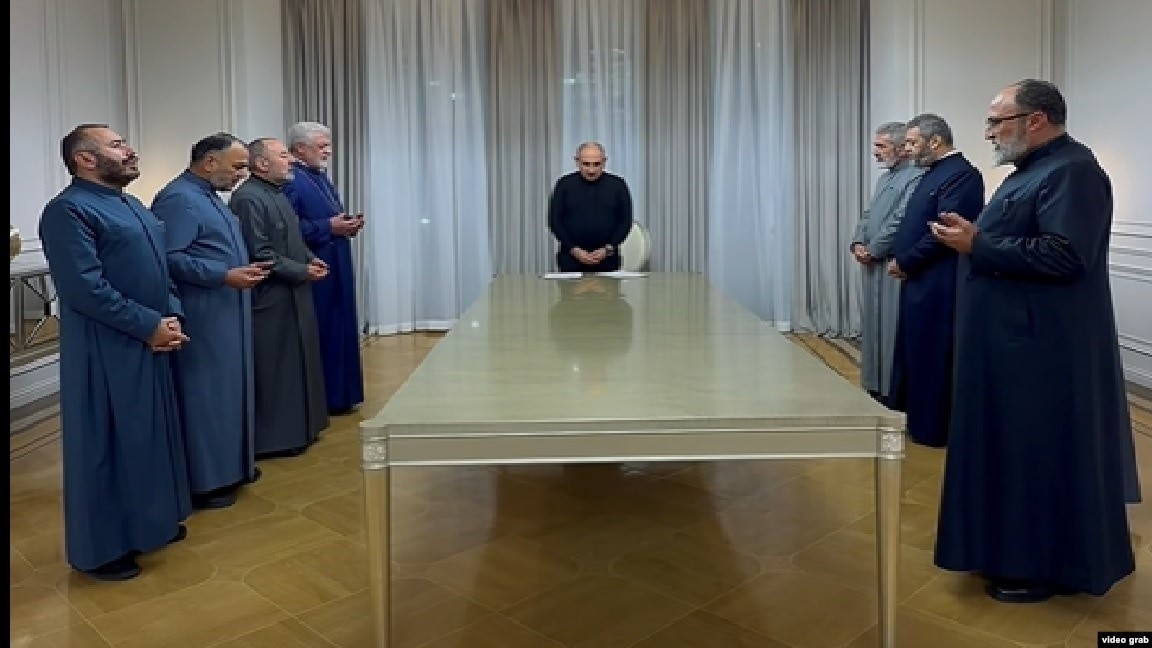Large-scale opposition rally taking place in Tbilisi. Protesters surrounding parliament building. Photos
The protests that began on November 14 are continuing today after the ruling party failed to pass an electoral reform bill in the Georgian parliament more than a week ago.
Today at 19:00 several thousand people gathered at the parliament demanding early parliamentary elections held under a new, fully proportional electoral system.
Their main slogan is “Together Against One”. The ‘one’ in this phrase is Bidzina Ivanishvili, the head of the ruling Georgian Dream party and the informal leader of the country.
Protesters blocked the parliament building, surrounding it with a living chain.
According to the amendments rejected by parliament, the country was to switch to a fully proportional system of parliamentary elections and abandon the majoritarian system. This was the main demand of the protesters during the first wave of protests in the summer of 2019. Then, in order to defuse the situation, the leader of the ruling Georgian Dream party Bidzina Ivanishvili promised the demonstrators that the majoritarian system, which gives a great advantage to the ruling party during the elections, will be done away with. However, the promise was broken and during the parliamentary vote, MPs loyal to Ivanishvili blocked the bill.
Civil activists accused Ivanishvili of ‘tricking the people and stealing the elections’ and took to the streets. Their main requirement was the appointment of early parliamentary elections on a proportional system. They were joined by the whole Georgian opposition, which united around this demand. The protesters picketed the parliament for three days, until the special forces forcefully dispersed the demonstrators using water cannons and batons.
However, since then, unrest in Tbilisi and other Georgian cities has not stopped. After dispersing the rally, within a few days, the opponents of the government resorted to “guerrilla” tactics of struggle: they hung huge chains with locks on the gates of the buildings of state institutions, booed ministers and MPs who came to work.
The main demand of the protesters remains: early parliamentary elections per a fully proportional system.
This video briefly tells the story of the November demonstrations:
The rally on November 25 was announced in advance. Starting the morning of November 26, the opposition and civil activists are going to close all the entrances to the Georgian parliament and prevent it from functioning.
“And so it will be until our requirement is met. There won’t be peace for the ruling party since this is their end,” says Shota Digmelashvili, one of the leaders of the civil movement.
By seven o’clock in the evening the opposition parties and their supporters began to approach the parliament through the entire center.
“Bidzina go away!”
“Bidzina, be ashamed!”
“Bidzina is a trickster!” was written on their posters.
At the microphone, opposition politicians of differing political views spoke one after the other; this is the first case in the last few years when the entire opposition has managed to unite.
Leaders emphasize that the protest is peaceful. According to the plan, part of the protesters will stay overnight at the parliament.
“It will be good if Ivanishvili comes to his senses. He insulted the whole Georgian public and the answer will be very dramatic for him. We want fair elections, but he left no choice but to radicalize the processes,” said Giga Bokeria, one of the leaders of European Georgia.
“It will be a long process, we will picket the parliament, we will hold rallies in all cities of Georgia, we will be dispersed, but we will meet again until our demand is met,” says Bachuki Kardava, leader of the National Democratic Party.
Police officers were mobilized on the territory near the parliament, as well as ambulance crews.
Response of the Georgian Dream: the topic is closed
On November 25, in the morning, a meeting of the parliamentary majority took place in the office of the ruling party. It was expected that before the start of the rally, the authorities might offer the protesters compromise proposals for discussion. However, after the meeting, it became clear that the ruling party was not going to make concessions.
Kakha Kaladze, the general secretary of the ruling Georgian Dream party, said after the meeting that the ruling team could not consider any new initiative to change the electoral system for the 2020 parliamentary elections, since “taking into account the mood in the parliamentary majority, there is no mobilization resource for today 113 votes around some new constitutional change.”
“The topic is closed,” Kaladze said.
Kaladze also strongly rejected the possibility of holding parliamentary elections on the so-called “German model” – a compromise version of the electoral system proposed by the opposition and civic activists.
According to this model, the parliamentary elections of 2020 will again be held according to a mixed system (73 deputies in majority districts, and 77 according to party lists).
However, unlike the current model, the collective principle will be canceled when the batch results obtained by the majoritarian and proportional system are summarized.
Instead, the party will receive the number of seats in parliament that will match its support through a proportional election system.
This initiative does not require an amendment to the Constitution and accordingly, its adoption does not require a constitutional majority (votes of 113 deputies). For the adoption of the change, the vote of 76 MPs would be enough.

